This article was originally posted on Real Clear Markets on January 18, 2017. This report is part of the Series on Financial Markets and Regulation and was produced by the Brookings Center on Regulation and Markets.
One of President-elect Donald Trump’s first actions may test the independence of financial regulators during his Administration. Trump has said that he will freeze hiring government-wide during his first 100 days in office. The pledge echoes President Ronald Reagan’s hiring freeze that he instituted on Inauguration Day. It is unclear whether Trump’s hiring freeze will explicitly include or exclude financial regulators or remain silent – triggering the need for financial regulators to assert their independence and ignore the directive.
The ambiguity of past president-ordered hiring freezes raises the question of whether independent financial regulators – such as the Federal Reserve Board of Governors (Fed), Office of the Comptroller of the Currency (OCC), the Securities and Exchange Commission (SEC), National Credit Union Administration (NCUA) and the Federal Deposit Insurance Corporation (FDIC) – would be forced to comply. These regulators have been granted a series of authorities by Congress so that they can exercise independence from the executive branch. Regulators are granted the ability to promulgate certain rules and regulations without review by the White House and to submit testimony and reports directly to Congress without input from any other part of the executive branch. Congress has even granted financial regulators independence from one of Congress’s most prized levers of power, the power of the purse, as they are able to function without annual Congressional appropriations.
Budgetary and regulatory independence is intended to depoliticize important financial decisions, such as setting monetary policy, closing a failing bank, or pursuing fraud charges against insider traders. Independence also helps to reduce regulatory capture by industry as industries have fewer avenues to exert political pressure through elected or appointed officials.
These regulators’ independence will be challenged if covered by a Trump Administration-ordered hiring freeze. Will financial regulators abide by such an order? Are they required by law to do so? Prior executive actions have included specific language indicating that they were not, such as this executive order on international regulatory cooperation:
Sec. 5. Independent Agencies. Independent regulatory agencies are encouraged to comply with the provisions of this order.
Note the language ‘encouraged’ which is very different than ‘required.’ The next section of the order goes even further stating:
Sec. 6. General Provisions. (a) Nothing in this order shall be construed to impair or otherwise affect: … activities in connection with subchapter II of chapter 53 of title 31 of the United States Code, title 26 of the United States Code, or Public Law 111-203 and other laws relating to financial regulation
However, insertion of this language into the executive order begs the question of what would happen if it were excluded. During my time at the Treasury Department, I was required to carry out an executive order and had to ask the OCC (technically an independent, self-funded bureau within the Treasury Department) how they were carrying out the order. The OCC responded that the order did not apply to them, which was correct as a small cross reference in the executive order referring carved out independent regulatory agencies. Agencies considered independent on that list include the financial regulatory agencies, the National Labor Relations Board, the Postal and Nuclear Regulatory Commissions, the Federal Maritime Commission and several more.
Independent financial regulators have not been immune from every hiring freeze. Past freezes affected the NCUA as well as the Nuclear Regulatory Commission. Moreover, the technical details and level of independence of each regulator varies. For example, the FDIC is ‘on-budget’ but receives no congressional appropriations, the SEC is on both budget and funded initially through appropriations, and the Fed is neither.
Will President Trump follow this precedent, or will he challenge the independence of financial regulators by not specifically carving them out? Will some be forced to abide by the order but not others based on small differences in their operations and structure? If the Administration does attempt to enforce a freeze on these regulatory bodies, that move could limit the capacity of regulators to carry out their functions by curtailing their ability to hire, promote and retain qualified individuals and by setting new precedents for the rest of Trump’s term. Hampering and politicizing financial regulatory agencies would be a mistake. It would reduce their ability to achieve Congressionally assigned mandates. Uneven application of the hiring freeze might create opportunities for regulatory arbitrage, one of the factors that helped to create the recent financial crisis.
Finally, recall a key finding of the outcome of the last federal hiring freeze: it was a bad idea. As the Government Accountability Office concluded in their comprehensive review of the hiring freezes of Presidents Carter and Reagan: “Government-wide hiring freezes, regardless of how well they are managed, are not an effective means of controlling federal employment. The government-wide hiring freezes had little effect on federal employment levels and it is not known whether they saved money. Because they ignored individual agencies’ missions, workload, and staffing requirement, these freezes disrupted agency operations and, in some cases, increased costs to the government.” This impact on financial regulators is undesirable regardless of how one thinks of their independence.
The Brookings Institution is committed to quality, independence, and impact.
We are supported by a diverse array of funders. In line with our values and policies, each Brookings publication represents the sole views of its author(s).
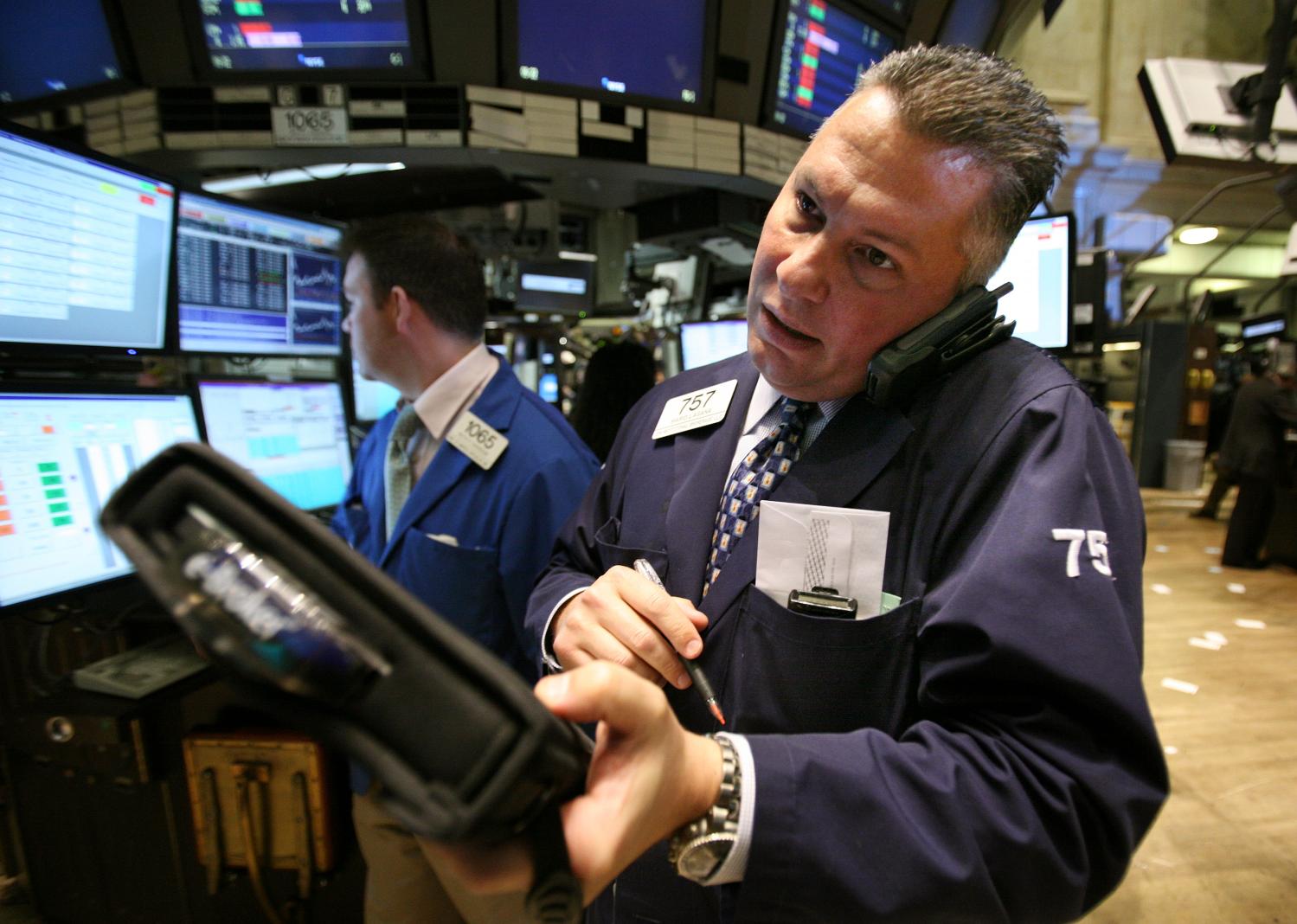
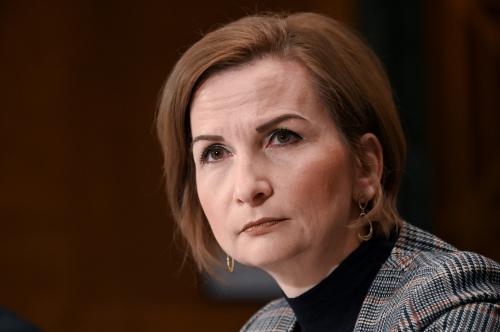
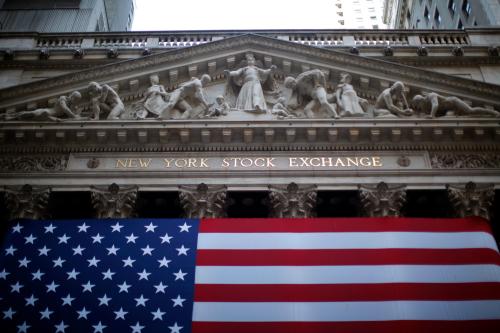
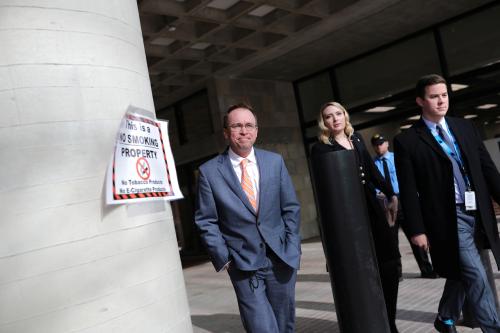
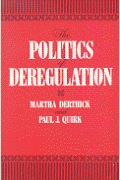

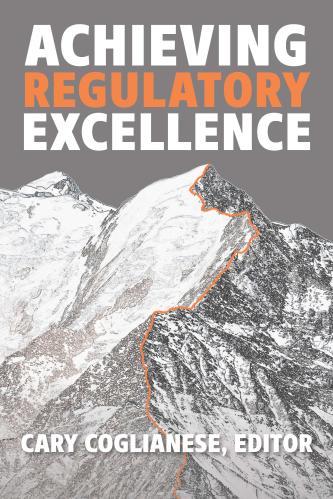

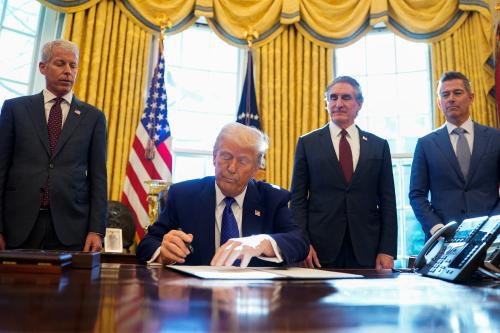
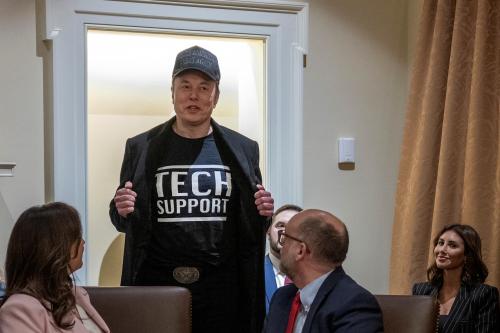
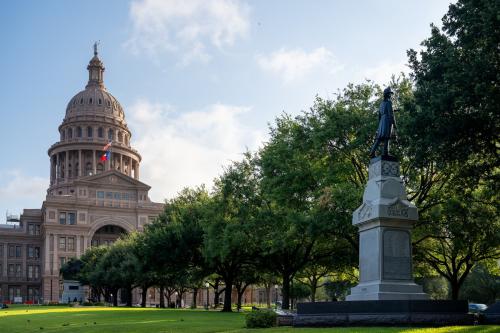
Commentary
Op-edWill Trump’s hiring freeze test financial regulators’ independence?
January 18, 2017